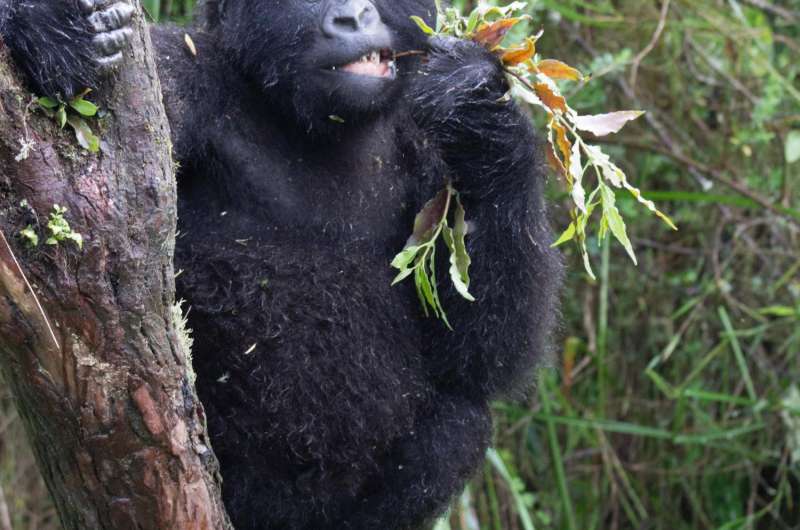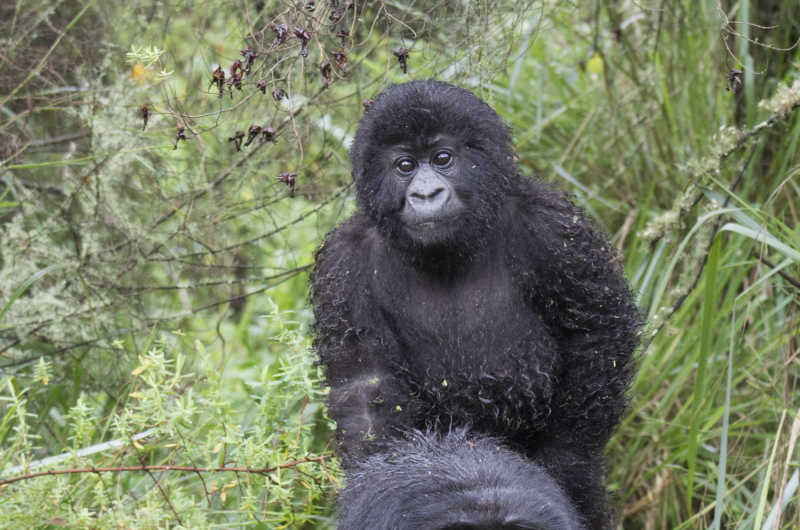Mountain gorillas have herpes virus similar to that found in humans

Scientists from the University of California, Davis, have detected a herpes virus in wild mountain gorillas that is very similar to the Epstein-Barr virus in humans, according to a study published today in the journal Scientific Reports.
Epstein Barr virus, or EBV, infects more than 90 percent of the human population, typically without major health consequences or symptoms. It can be challenging, however, for people with HIV/AIDS and suppressed immune systems, leading to certain forms of cancer. The Epstein-Barr virus is also one of the major causes of mononucleosis, commonly called the "kissing disease."
The study found that the mountain gorillas, a critically endangered species, have their own version of this herpes virus - a specific strain of lymphocryptovirus 1, or GbbLCV-1.
Virus widespread, but few symptoms
For the study, UC Davis researchers from Gorilla Doctors collected plants chewed by wild mountain gorillas in Rwanda and Uganda and analyzed the saliva left on the plants. This non-invasive, oral sampling technique showed that the virus is widespread, infecting 52 percent of infant gorillas studied. That is a similar rate to what is found in human infants in less developed countries.
The researchers say that the virus carries little health risk for otherwise healthy mountain gorillas and, like EBV, is typically dormant in their bodies. None of the live gorillas studied showed symptoms of having it.

However, the research team found that some infant gorillas who died of natural causes and were necropsied had "pulmonary reactive lymphoid hyperplasia," a condition seen in human infants and young children with HIV/AIDS who become infected with EBV.
The findings could provide valuable information for human disease and have conservation implications for the gorillas.
"Viruses can behave similarly in different species," said lead author Tierra Smiley Evans, a post-doctoral researcher with the UC Davis One Health Institute in the School of Veterinary Medicine. "Learning about how gorillas react to this virus in their natural setting may help us have a better understanding of how Epstein-Barr virus affects human infants."
Mountain gorillas are one of humans' closest genetic relatives. Among the great apes, they are among the most studied. Veterinarians from the Gorilla Doctors, a partnership between the UC Davis Wildlife Health Institute and the nonprofit Mountain Gorilla Veterinary Project, treat injured wild mountain gorillas and can continue to study this condition in the future.

















